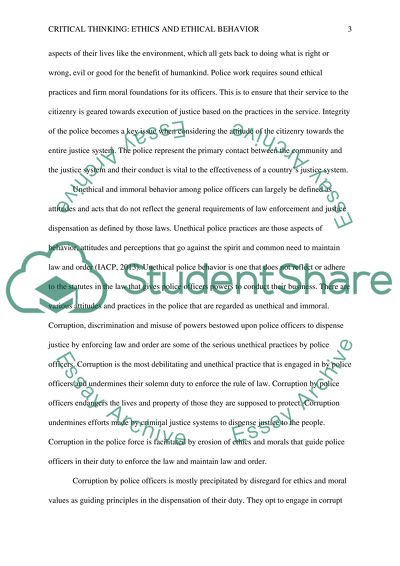Cite this document
(“Critical Thinking: Ethics and Ethical Behavior Essay”, n.d.)
Critical Thinking: Ethics and Ethical Behavior Essay. Retrieved from https://studentshare.org/sociology/1488220-critical-thinking-ethics-and-ethical-behavior
Critical Thinking: Ethics and Ethical Behavior Essay. Retrieved from https://studentshare.org/sociology/1488220-critical-thinking-ethics-and-ethical-behavior
(Critical Thinking: Ethics and Ethical Behavior Essay)
Critical Thinking: Ethics and Ethical Behavior Essay. https://studentshare.org/sociology/1488220-critical-thinking-ethics-and-ethical-behavior.
Critical Thinking: Ethics and Ethical Behavior Essay. https://studentshare.org/sociology/1488220-critical-thinking-ethics-and-ethical-behavior.
“Critical Thinking: Ethics and Ethical Behavior Essay”, n.d. https://studentshare.org/sociology/1488220-critical-thinking-ethics-and-ethical-behavior.


